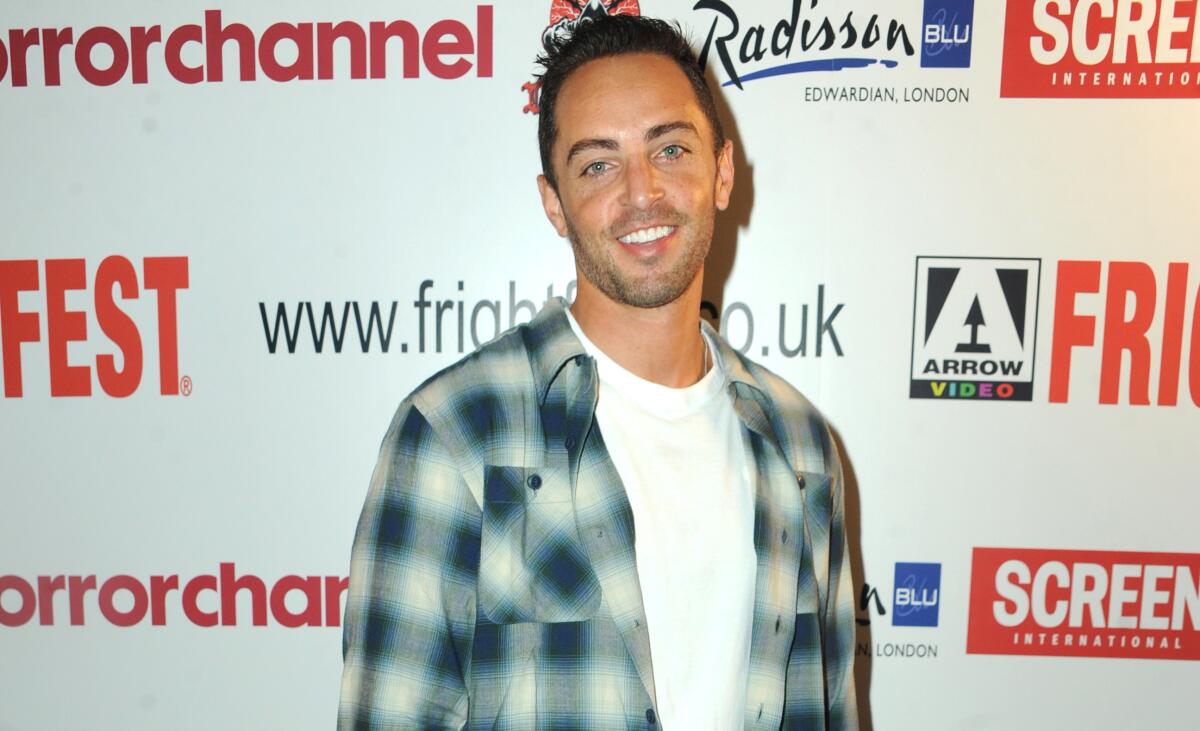Actor who faked HBO and Netflix deals is set to plead guilty in $650-million Ponzi scheme

Zachary Horwitz, an actor in low-budget horror and science-fiction movies, has agreed to plead guilty to running a massive Hollywood Ponzi scheme.
Horwitz, 34, admitted in court papers that he duped investors into giving him more than $650 million for fictitious movie deals with HBO and Netflix.
While Horwitz repaid much of the money in order to lure victims into investing more, he also spent large sums of it to finance his “lavish lifestyle,” according to his Sept.1 plea agreement with the U.S. attorney’s office in Los Angeles. Horwitz acknowledged that he has failed to repay $231 million.
The agreement calls for Horwitz to plead guilty to one count of securities fraud at a hearing on Oct. 4. Prosecutors indicated in court records they will ask U.S. District Judge Mark C. Scarsi to impose a hefty sentence in light of the huge sum Horwitz swindled. He faces up to 20 years in prison.
Horwitz’s attorney, Anthony Pacheco, did not respond to requests for comment.
Horwitz admitted in the plea agreement that for seven years he falsely represented to investors that his film company, 1inMM Capital, LLC, was buying foreign distribution rights to movies, then licensing them to Netflix, HBO or other platforms to stream online in Latin America, Australia, Europe and Africa.
Investors would “lend” 1inMM Capital from $35,000 to $1.5 million per film deal, and Horwitz guaranteed he would repay them within a year with a return of 25% to 45%, according to the plea agreement.
But Horwitz acknowledged in the agreement that the distribution and licensing contracts were forged. The effort to con investors into thinking they would eventually be repaid included showing them fake correspondence he claimed to have exchanged with Netflix and HBO executives.
Actor Zachary Horwitz collected $690 million from investors for movie deals the FBI says were fictitious.
More than 250 investors fell victim to Horwitz’s scheme, the plea agreement says. They included several of Horwitz’s closest friends from college, along with their parents, grandparents, siblings and in-laws, some of whom lost their retirement savings.
Brian R. Michael, a lawyer for three of the college friends, said his clients were pleased that Horwitz “is being held accountable for his criminal fraud.” The college friends have been trying to help federal investigators recover Horwitz’s assets so that victims “can rebuild their lives after the devastating harm he has caused so many people,” Michael said.
Horwitz, who grew up in Florida and Indiana, moved to Los Angeles in 2012. He befriended two brothers who helped him break into the film business: producer Julio Hallivis and his brother Diego, a director and producer. Under the name Zach Avery, Horwitz appeared in a series of their low-end films including “Trespassers” and “The Devil Below.”
The Ponzi scheme turned Horwitz into a wealthy man. He traveled by private jet and bought a $5.7 million Beverlywood house with a screening room, gym and 1,000-bottle wine cellar, according to court records. Former friends said in court papers that he often bought courtside seats at Lakers games and once tried to tip a waitress $5,000.

The scam began to unravel in 2019 when Horwitz was unable to meet investors’ demands for repayment, sparking a lawsuit that alerted Netflix to his use of forged contracts.
Horwitz was arrested at dawn on April 6, when FBI agents raided the house in Beverlywood.
“The banging of the doors literally caused our walls to tremble and being woken up to a troop of FBI agents swarming our house was the most terrifying thing I had ever experienced,” Mallory Horwitz, his wife, said in court papers.
Weeks after the arrest, Mallory Horwitz filed for divorce, saying in court that her husband had been “deceiving and manipulating me and everyone around him, and he is not the person that I believed he was.”
A federal grand jury indicted Horwitz in May on five counts of securities fraud, six counts of wire fraud and two counts of aggravated identity theft. If he goes forward with the plan to plead guilty to the single fraud charge, the others will be dismissed.
More to Read
Sign up for Essential California
The most important California stories and recommendations in your inbox every morning.
You may occasionally receive promotional content from the Los Angeles Times.










